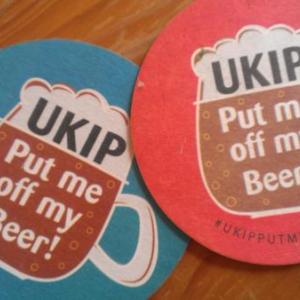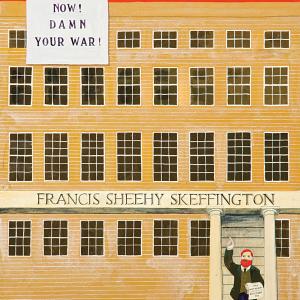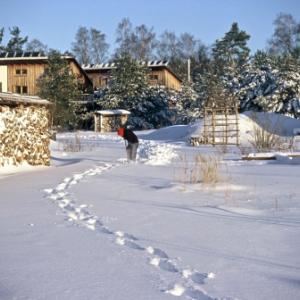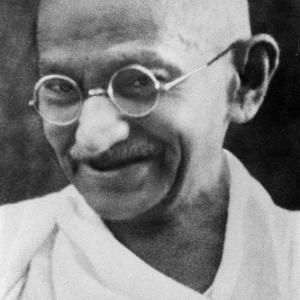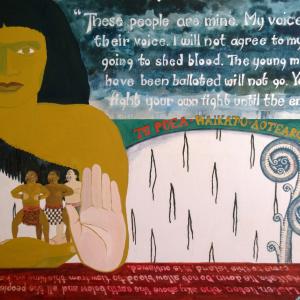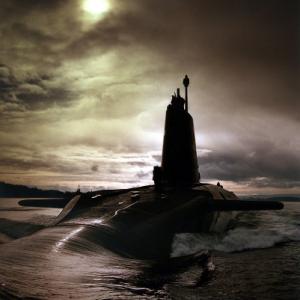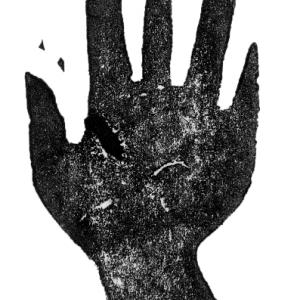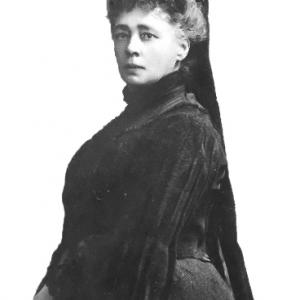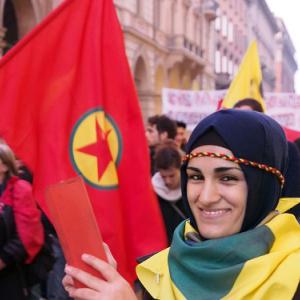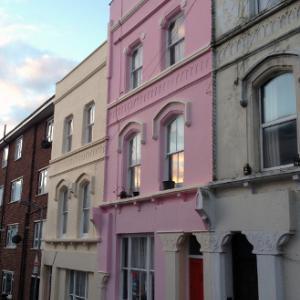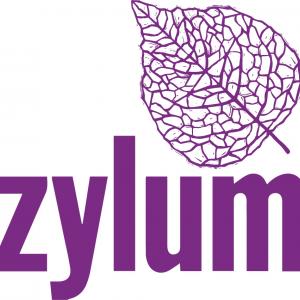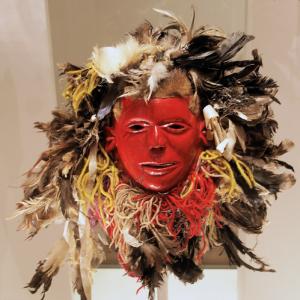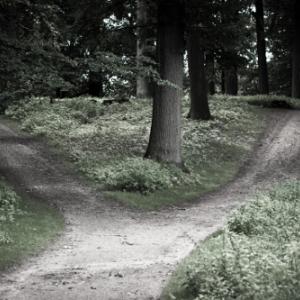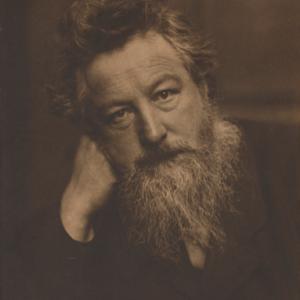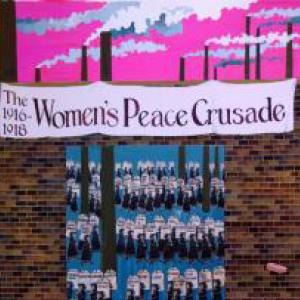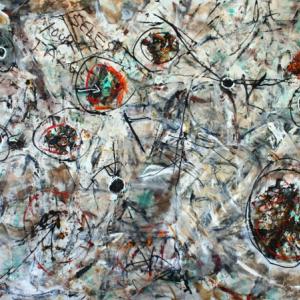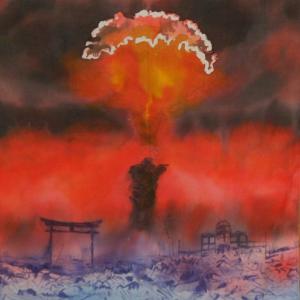My favourite local pub is the Horse & Groom – up at the top of Norman Road. It proudly boasts its history as the oldest pub in St Leonards-on-Sea, in East Sussex, and is a fine example of what I have always called ‘OMPs’ – Old Man’s Pubs. That’s not an insult, it’s just a special kind of pub.
You enter and there’s usually a warm, quiet atmosphere – a bit of chat at the bar, a few small groups of people sat around tables, a solitary chap reading a paper with a well-behaved dog…
Features
A passionate feminist, the Irish pacifist Francis Sheehy-Skeffington viewed war and anti-feminism as ‘branches of the same tree – disregard of true life-values’. It is therefore unsurprising that, less than a fortnight after Britain’s declaration of war in 1914, the paper he edited, the Irish Citizen, produced a poster bearing the immortal slogan: ‘Votes for…
Sieben Linden ecovillage in winter. Photo: Herbst77regen
‘I was a bit worried about the project of self- sufficiency, and how few differences there were between them and mainstream society’, said Leslie Barson, describing her recent stay at a prominent eco-village in Germany.
Barson spent a month taking a course at Sieben Linden, an eco-village formed in the late ’90s that is aiming to find a more sustainable and self-sufficient way of life. During her stay there, Barson noticed some…
Given his canonisation by mainstream culture as the icon of peace and nonviolence, one might have imagined that Gandhi would have led a strong campaign of resistance to the war. Unfortunately, nothing could be further from the case.
In April 1918, Gandhi gave his unconditional assent to British plans to raise half a million more Indian troops. Attempting to recruit 12,000 men from the Kheda district of Gujarat, Gandhi did not shy away from employing moral coercion, telling them…
Stuart Field is in a unique position to comment on the discussions within Radical Routes, as not only has he been involved in the network since it incorporated in 1992 (first as a volunteer and later as the paid finance worker), he also worked for five years for a similar co-operative network in Holland called Solidair.
Solidair is over 10 years older than Radical Routes (RR), having its origins in the mid-1970s. Recently, Solidair has dissolved most of its network, and is winding…
Te Puea Herangi, the Maori princess who led the Waikaito tribal confederation’s successful campaign of nonviolent resistance to conscription during the First World War, articulated one of their reasons for not fighting as follows: ‘They tell us to fight for king and country. Well, that’s all right. We’ve got a king.…
Trident submarine. Photo: Paul O’Shau/MOD
Different groups are using different strategies to try to make an election issue out of Trident replacement. The British decision on whether/how to replace the Trident nuclear weapon system is scheduled to be made in 2016, which means the 7 May 2015 election will elect the government that takes this £100bn decision. This has been described as ‘a once-in-a-lifetime opportunity to scrap Trident and ban all nuclear weapons’.
Lobbying
The…
Catalyst Project works to consciously create a culture that helps white people take strategic and effective anti-racist action as a part of multiracial movements.
We think that white anti-racist organising requires that we move away from competitive, individualist thinking, and instead support as many people as we can to be effective change agents, working in accountable relationships with people of colour-led organisations. These shifts in organising culture help create more…
Bertha von Suttner 1906. Photo: Carl Pietzner
She is hardly known in this country. Faces go blank when I mention her name. Even amongst friends in the peace movement. At the same time numerous schools, streets and public squares in Austria and Germany are named after her: Bertha von Suttner, who lived from 1843 to 1914. The commemoration of the outbreak of the First World War would give a distorted picture if we did not simultaneously remember the courageous stories of those who campaigned…
Evidence of opposition to the war in the West Indies can be traced in the various countries’ newspapers (which were invariably hostile to such activity).
In British Honduras, calls for men to enlist resulted in an unprecedented exodus of young men from the district of San Estevan in early 1916. Some fled across the border to Mexico, while others, who had heard that the governor was coming to their area on a recruiting drive, disappeared into the bush claiming that they had…
Kurdish protests against siege of Kobane by ISIS in Bologna, Italy on Global day for Kobane. November 1st 2014. Photo: Petar Miloševic
The heroic resistance of the people of Kobane in fighting the onslaught of the Daesh (ISIS) fascists since mid-September, has led to a surge of international solidarity. A multitude of articles and statements have been written and protests have been held in cities across the world. Kurds have flooded across the Turkish border to help their compatriots in the…
The pink house, Walden Pond Housing Co-op in St Leonards-on-Sea. photo: Milan Rai
Radical Routes has been an amazing radical success story, proving that democratic radical institutions can survive and thrive, operating by a modified form of consensus decision-making, and turning private property into collectively-owned, activist-controlled spaces. For some, the success of Radical Routes (RR) has proven that ‘anarchists can deal with money’.
Today, Radical Routes is changing some…
On 10 January, Peace News are launching Zylum, our new online resource for grassroots campaigning groups, at a dayschool we’re calling ‘Weaving Our Own Web: using the internet to strengthen our groups and campaign more effectively’.
At the dayschool in London, there will be workshops for people who want to learn about basic digital tools (like email lists); for people who want to learn more about tools they’ve already taught themselves how to use (like WordPress) or who want more…
Late 20th century nyau face mask. PHOTO © Hans Hillewaert
They must have been very pleased when they finally caught him. Desperate to find him, the British had placed his friends and family under surveilliance and – after six weeks of unsuccessful hunting – had even offered a substantial reward for his capture.
Like many other Muslims in the north of Nigeria, he was opposed to fighting in the First World War for fear that he might be deployed against his fellow Muslims in the Ottoman…
'Flickr - Laenulfean - crossroads' by Carsten Tolkmit from Kiel, Germany. Photo: Carsten Tolkmit CC-by-SA 2.0 via Wikimedia Commons
After 26 years supporting its activist membership in taking over £4m-worth of housing out of the private property market, the Radical Routes network of radical housing and worker co-ops deleted a fundamental membership condition in the summer of 2014 and may well abolish another before the end of 2015.
Shortly after being formed in 1988, Radical Routes…
William Morris by Frederick Hollyer, 1884. Photo: National Portriat Gallery, London
William Morris is woven into our lives, sung upon our soul, written into our minds.
When I was a very small child, maybe four years old, I remember laughing at the slapstick of Albert Meltzer being stuck in our armchair. It was low, black wood with green upholstery. Albert, the enormous anarchist, had his plump hands on the velvet arms and was straining to extricate his bulk from between the turned…
‘The View from the Drone; Northern Pakistan (23 January 2009)’
by Steve Pratt, former SAS soldier turned art psychotherapist.If peace is the ecology of mutual relationships, violence is the deliberate or negligent destruction of that ecology – the violation of persons, cultures, communities, peoples, the Earth.
Control, as the will to force a situation into a specific outcome, or to prevent one, is one way of understanding the genesis of violence. As such, violence is the extension…
What is Croughton?
Seemingly not many people know about ‘RAF’ Croughton near Brackley and bordering Northamptonshire and Oxfordshire. Misleadingly referred to as an RAF base, this important US facility is occupied and controlled by the US under the umbrella of the United States Air Force. It supports presidential, NATO, US European command, US central command, US air force special operations command, and US department of state operations. The US national security agency (NSA), the…
For the last few years we have been holidaying at Little Wedlock, owned by Quakers Anne and Malcolm Gregson. Anne is a fine artist who runs a gallery with her daughter. In August, we were treated to her latest collection ‘The Dance of Life and the Dance of Death’, created especially for an exhibition about peace.
‘The Dance of Life’ is a set of four paintings on silk hangings. ‘Forest Green’ has been sold, but the remaining hangings are still part of the exhibition. ‘Life Giving…


